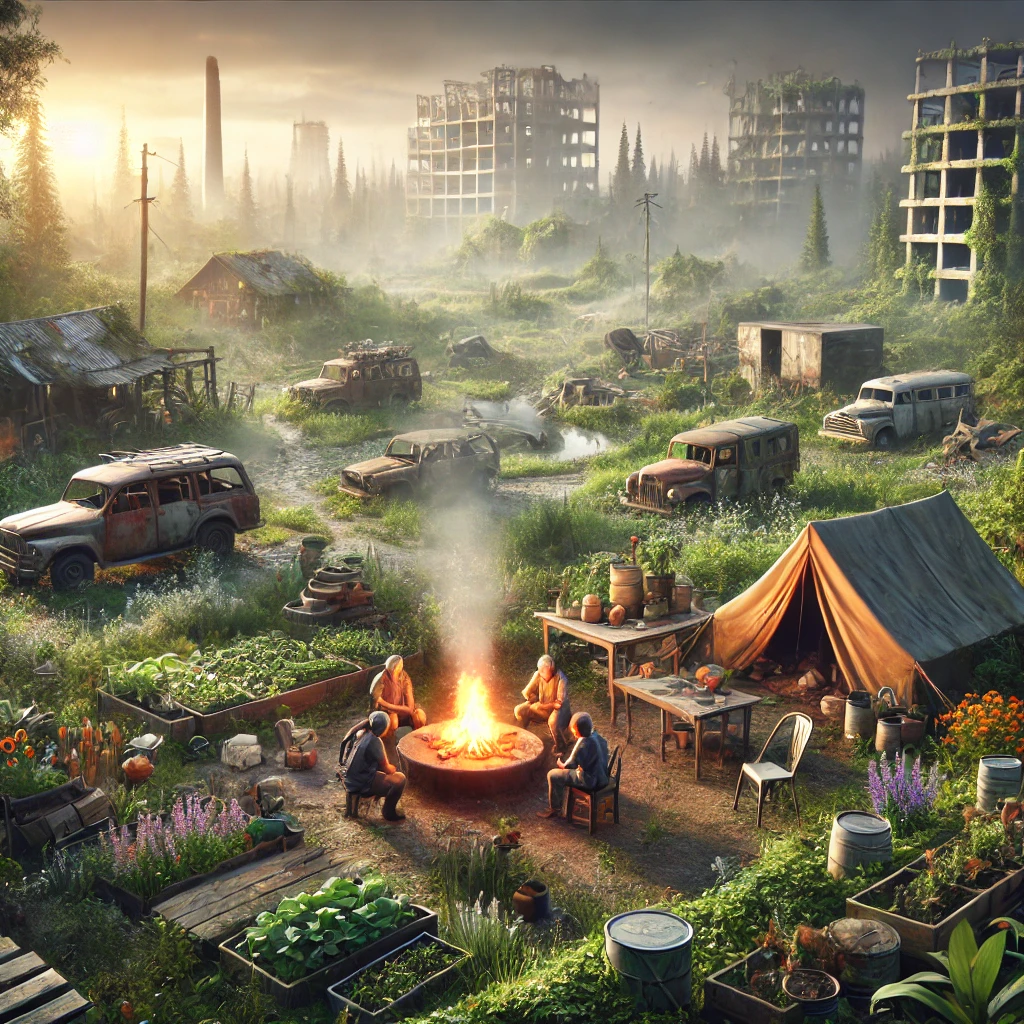BLOG II – Human Security Crisis: Redefining Safety in a Post-Pandemic World
In Stephen King’s The Stand, the world’s population is nearly eradicated by a pandemic, and the survivors are forced to confront a new reality where safety and security must be redefined. Unlike traditional security concerns centered on military power and national borders, The Stand highlights the importance of human security, the safety and well-being of individuals and communities. In this post, I examine how pandemics force societies to prioritize human security and explore parallels to real-world crises, such as the COVID-19 pandemic, where health, economic stability, and community resilience became critical.
The Human Security Crisis: Redefining Safety
Historically, global security has been defined through a military and geopolitical lens, focusing on state power, borders, and conflict. The Stand challenges this notion by portraying a post-pandemic world where traditional security structures are irrelevant. Instead, survival depends on the ability to rebuild trust, maintain health, and restore community cooperation.
The survivors in The Stand must address human-centered priorities such as:
• Health and Disease: Ensuring immunity and protection from lingering threats.
• Community and Trust: Establishing new societal norms based on cooperation.
• Basic Needs: Access to food, clean water, and shelter in a post-collapse world.
This mirrors the United Nations’ Human Security Framework, which emphasizes health, economic stability, food, and environmental security as core components of societal well-being.
The COVID-19 pandemic demonstrated the importance of human security. As hospitals were overwhelmed and economies stagnated, governments were forced to shift focus from defense and geopolitics to protecting citizens’ health and livelihoods. Health systems, food security, and economic stability became the defining security challenges of the 21st century.
• Healthcare: The pandemic exposed weaknesses in global health infrastructure, particularly in marginalized communities.
• Economic Impact: Job loss, poverty, and supply chain disruptions underscored the interconnectedness of human and economic security.
• Community Trust: The spread of misinformation and distrust in leadership weakened collective efforts to combat the virus.
Discussion:
How does The Stand demonstrate a shift from traditional security concerns to human security? How can we apply these lessons to ensure societies are better equipped to address future pandemics?
Link to Global Security:
In a post-pandemic world, national security cannot be separated from human security. Governments and global institutions must prioritize public health infrastructure, economic safety nets, and community resilience as essential components of security strategy.
Health and Economic Security as Interconnected Crises
In The Stand, the survivors’ health is their most pressing concern. Without medical infrastructure, even minor illnesses become life-threatening, and survivors rely on limited resources to stay alive. This reflects the centrality of health security as the foundation for all other aspects of stability.
The novel also portrays economic collapse as a consequence of the pandemic. When labor forces disappear, supply chains halt, and currencies lose value, societies lose the ability to function. In The Stand, survivors must return to barter systems and self-sufficiency, illustrating how economic security is intertwined with health and community survival.
During COVID-19, global economies experienced similar shocks:
• Small businesses closed, supply chains were disrupted, and unemployment soared.
• Healthcare and frontline workers faced severe risks, highlighting the connection between labor forces and economic resilience.
Discussion:
How does The Stand emphasize the importance of health as the cornerstone of human security? What role does economic stability play in ensuring societal resilience during crises?
Link to Global Security:
The pandemic revealed that health and economic security are global priorities that transcend borders. Addressing these crises requires international cooperation, equitable resource distribution, and investments in healthcare and economic infrastructure.
Rebuilding Trust and Community Resilience
Survivors in The Stand must not only navigate a broken world but also rebuild trust and establish new systems of governance. The formation of the Boulder Free Zone represents an attempt to restore community resilience through cooperation, shared leadership, and moral values.
However, the novel also warns of the dangers of distrust and division, exemplified by Randall Flagg’s authoritarian regime. Flagg’s community is built on fear and control, contrasting with the collaborative approach of the Boulder survivors.
The COVID-19 pandemic highlighted the importance of social cohesion and trust in leadership during a crisis:
• Collaboration: Communities that worked together to enforce public health measures fared better.
• Misinformation: Distrust in leadership and conspiracy theories undermined efforts to contain the virus.
Discussion:
How does The Stand illustrate the role of trust and cooperation in rebuilding societies? What lessons can we learn about fostering community resilience in real-world crises?
Link to Global Security:
Trust and cooperation are critical components of human security. Societies must address misinformation, strengthen leadership transparency, and empower local communities to respond effectively to global challenges.
Conclusion: Redefining Security for an Uncertain Future
In The Stand, the survivors’ journey demonstrates that pandemics redefine what it means to be secure. Traditional notions of power and state security crumble in the face of biological threats, leaving human security—health, economic stability, and community resilience—as the true pillars of survival.
The COVID-19 pandemic brought these lessons into stark reality, forcing governments, institutions, and individuals to recognize that security must prioritize people over power. As we prepare for future challenges, whether pandemics, climate change, or economic disruptions, human security must be at the forefront of global strategy.
Stephen King’s The Stand reminds us that in times of crisis, the health and well-being of individuals form the foundation for rebuilding societies and ensuring a secure future.
Previous in the Series: “The Stand” and the Collapse of Order: Global Security and the Fragility of Modern Systems
Next in the Series: Nature Strikes Back: Climate Change, Pandemics, and Environmental Breakdown

